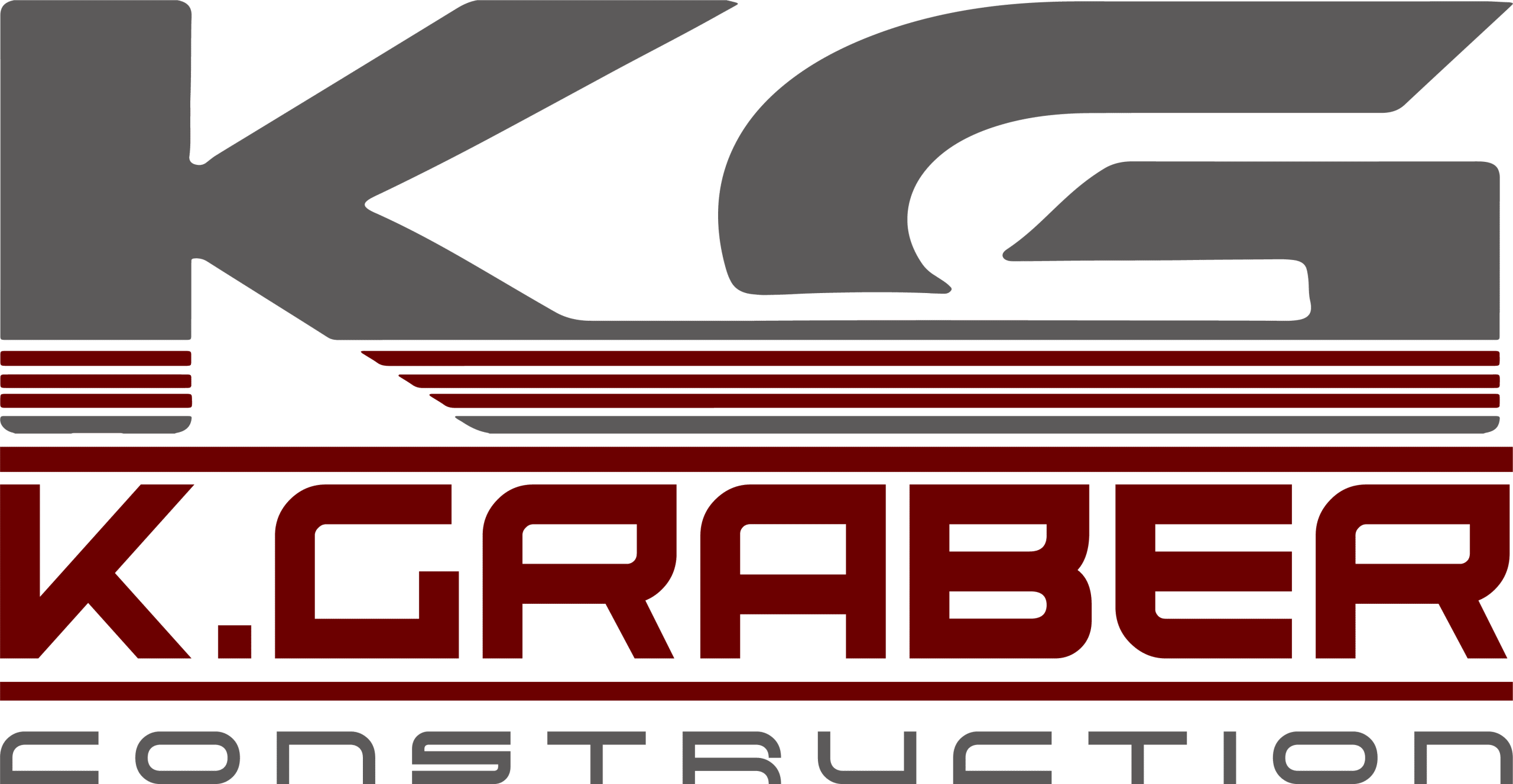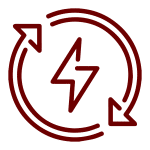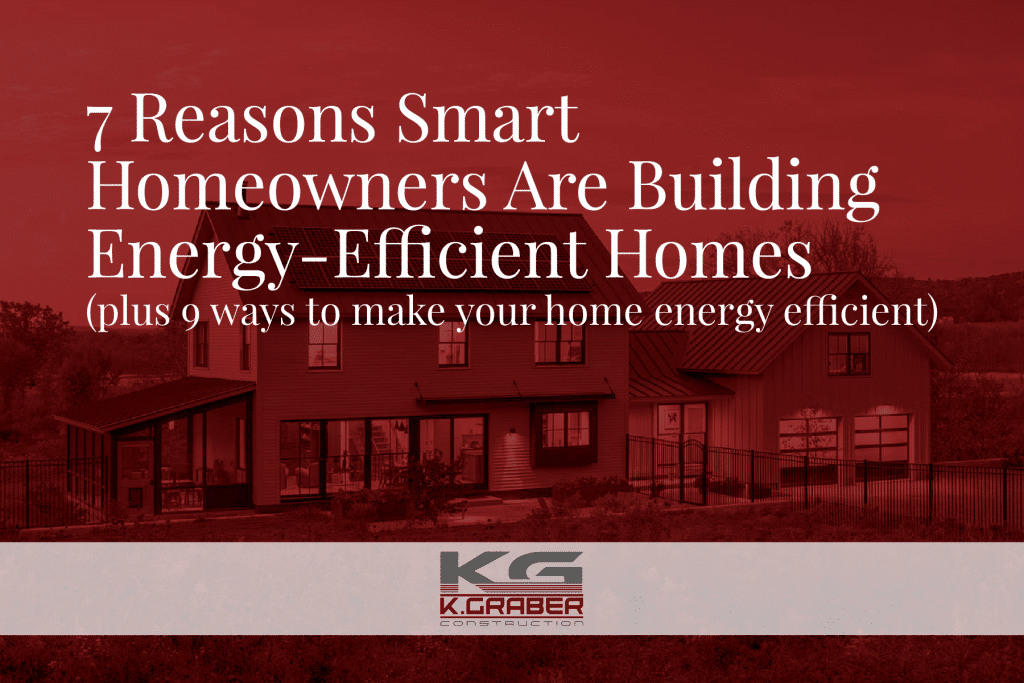
7 Reasons Smart Homeowners Are Building Energy-Efficient Homes (plus 9 ways to make your home energy efficient)
Are you concerned about the energy efficiency of your home?
You have good reason to!
In 2019, the US consumed 100 quadrillions Btu of energy. The use of that energy emitted 6.6 billion metric tons of greenhouse gases into the atmosphere.
From driving cars to building homes, people are wondering how to maximize efficiency to use less energy, protect the earth, and create a brighter future for their children.
Here at K Graber Construction, we understand the struggle. That's why we've written this article, which explores the importance of building energy-efficient homes and how you can make your new home more energy-efficient.
As a bonus, we will then look at several unique types of energy-efficient homes.
Ready to get started?
Let’s go!
7 Benefits of an Energy Efficient Home
First off: Why is it important to build an energy-efficient home? After all, some wonder whether you can build an energy-efficient home without breaking your budget.
It does cost more to build an energy-efficient home. But have you considered what it might save you in the long run?
Think about saving 25% on your monthly utility bills. Over the years that could balance out the extra money that you paid during construction!
But wait...there's more! Let’s take a look at seven advantages of an energy-efficient home.
Eco friendly
Most people want to lower greenhouse gas emissions and protect the environment. Making your home energy efficient is one of the best ways to do your part.
If everyone built their homes according to Energy Star Certification regulations, each home would use around 30% less energy than the current average home.
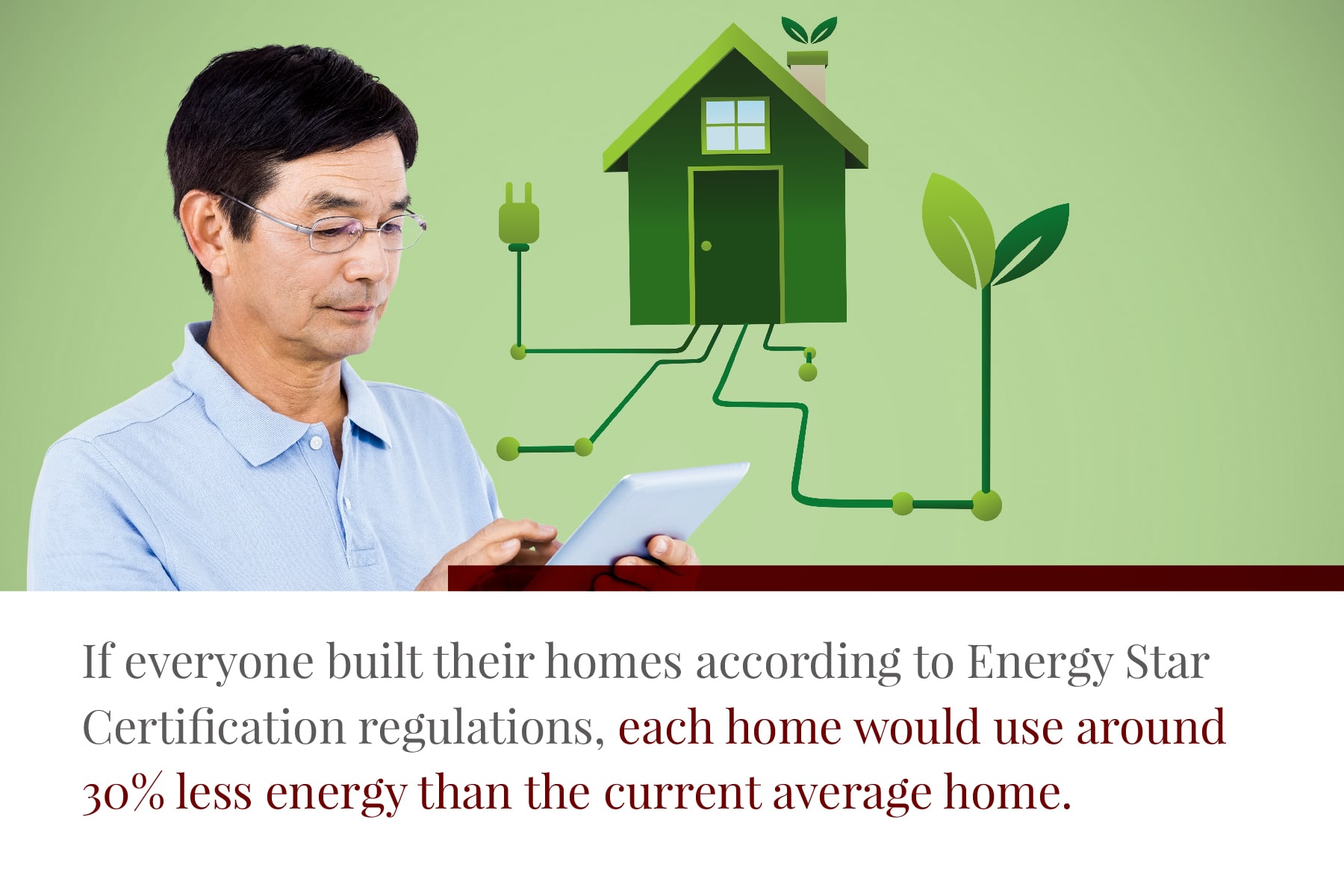
Imagine how much energy we could save if everyone built their home this way!
Comfortable
Energy-efficient homes are well-sealed with high-quality doors, windows, and insulation
Doing these things right guarantees comfort even in extreme temperatures. You can eliminate drafts, hot and cold spots, and temperature changes in your house with quality construction and building materials.
So besides being good for the environment, an energy-efficient home also keeps you comfortable!
Low maintenance
Homes geared toward energy efficiency tend to require less maintenance than traditional homes.
Why?
Because one of the most significant elements of building an energy-efficient home is simply quality construction.
Appliances and supplies made to be energy efficient are usually higher quality than cheap ones. The higher quality means they will last longer and require less maintenance.
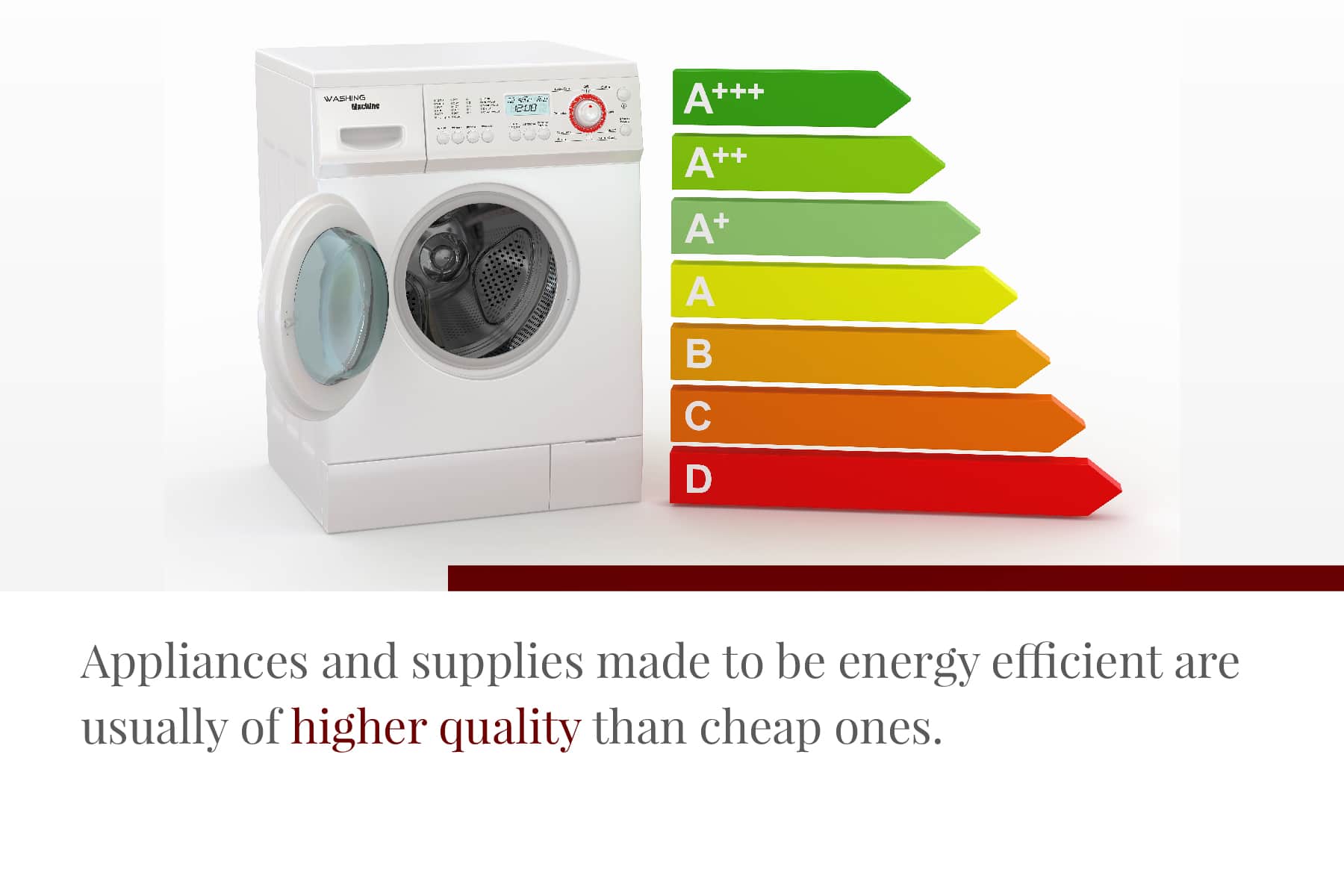
Quality home construction almost always means you will have fewer issues with mold, cracks, leaks, and stains down the road.
Saves money
Do you like paying your monthly utility bills?
Probably not!
It is common sense that if your home is energy efficient, you will pay less for utilities.
Remember that saving energy in your home combines looking at the big picture and changing small daily habits. Big things like sealing your home well and installing quality, energy-efficient appliances matter. But small things like turning the lights off and shortening your showers also matter.
Keeping both the big picture and the little details in mind helps you save energy and money in your home.
Better resale value
Did you know that energy efficiency is highly sought after by potential home buyers?
An energy-efficient home is usually worth more than an identical, non-energy-efficient home. It may sell quicker, too.
In fact, a 2019 study by the National Association of Homeowners concluded that energy-efficient homes usually bring in about $5,000 more than traditional homes. Another study showed that 37% of home buyers would pay an extra $10,000 for energy-efficient features.
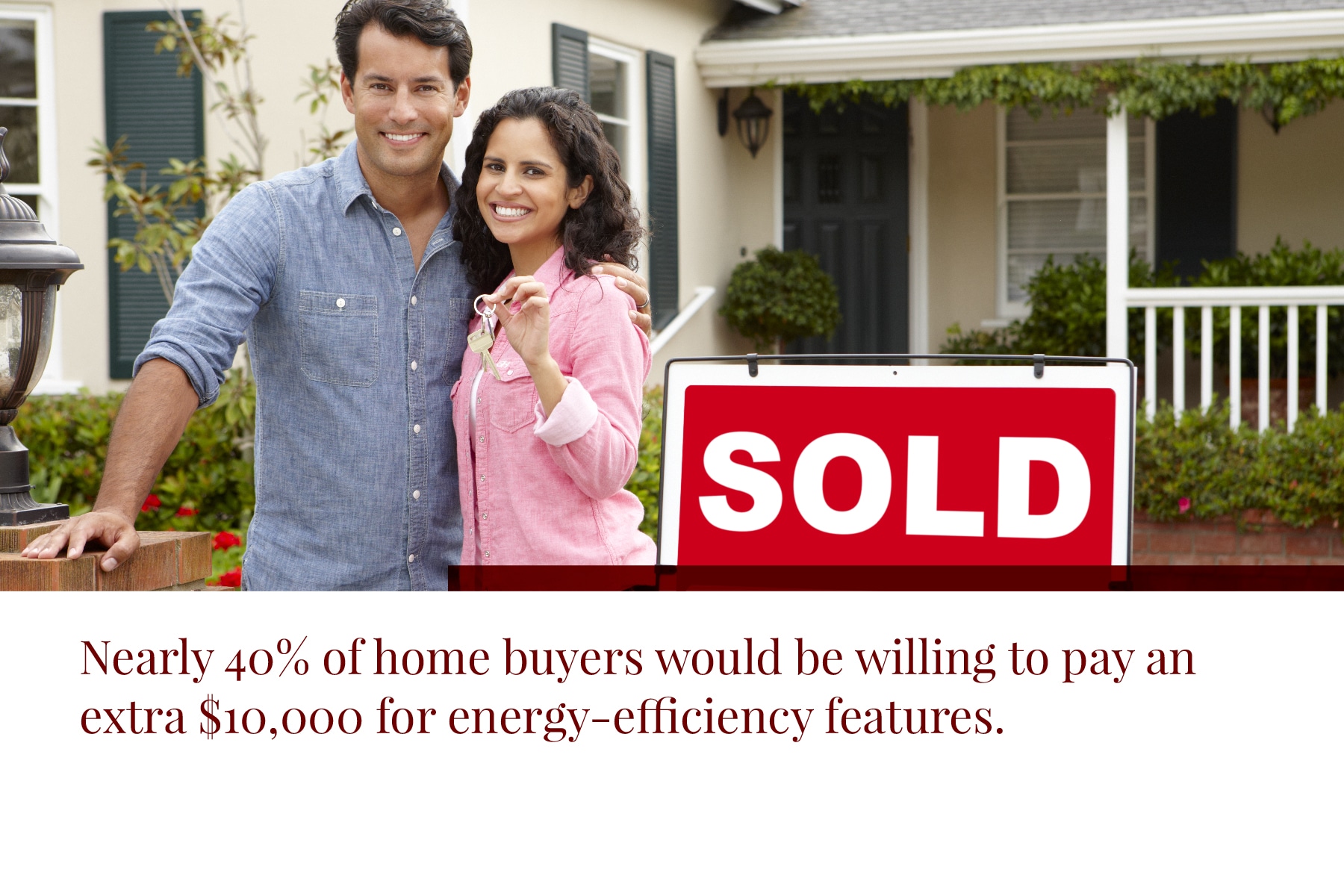
Helps grid efficiency
Often, problems like brownouts occur when there is a large spike in power demand, such as in the evening when families get home and start turning on the heat and lights, cooking dinner, and doing laundry. By making our homes more efficient, we could reduce our energy usage and cut out problems like brownouts.
How?
When we reduce the energy needs in our homes, we put less of a strain on the electrical grid, which makes the grid more reliable.
Making homes more energy efficient is often cheaper overall than improving grid infrastructure.
Peace of mind
With an efficient home, you can relax knowing you are saving money and helping preserve the environment. And, because you know your home is built with quality supplies and construction, you know it has good resale value.
So you can kick back and enjoy the comfort of your quality new home!
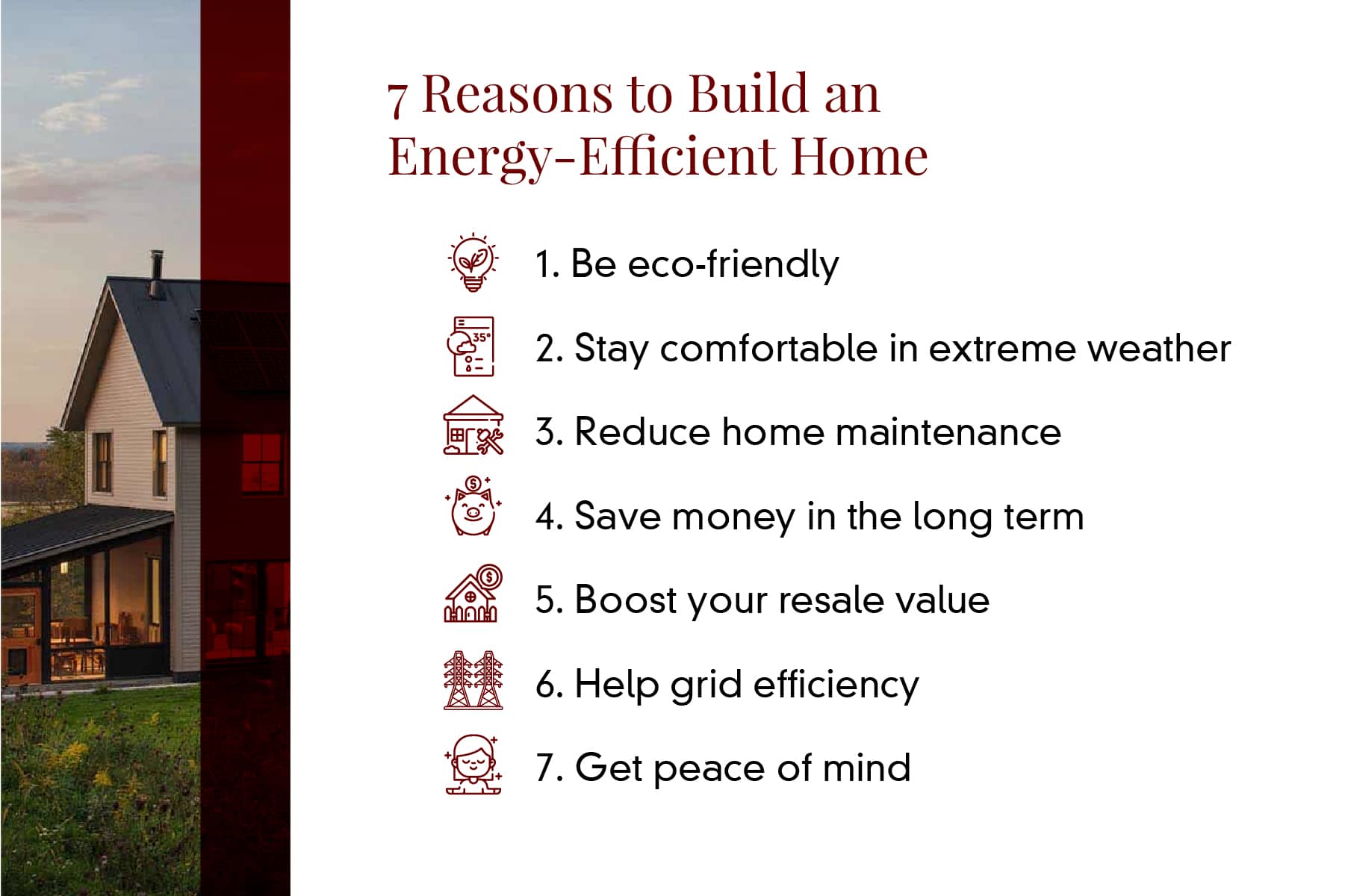
9 Ways To Make Your New Home Energy Efficient
Now that you know why you should make your home energy efficient, let’s move on to how to accomplish this.
What are some ways you can build your new home to save energy?
Let’s take a look at some ideas.
Seal all leaks
Sealing up all the air leaks in your home is a surefire way to save energy.
It only makes sense—the less heat or AC leaks out of your home, the less you have to use. In addition, the less you pay for heat and AC.
Some common places to find air leaks are:
- In the attic
- Around wiring and plumbing
- Around the furnace and ductwork
- Around windows and doors
Don’t let the money you pay for heating leak out your windows! Seal up those leaks in your home today.
Quality insulation
You can seal all the leaks, but some heat and AC will still dissipate through your walls.
Insulation acts as a barrier to prevent heat exchange between your home and the outdoors. The better insulated your home is, the less heat and AC will escape through your walls. Better insulation reduces the heat and AC you need—so the less energy you use and the less you pay.
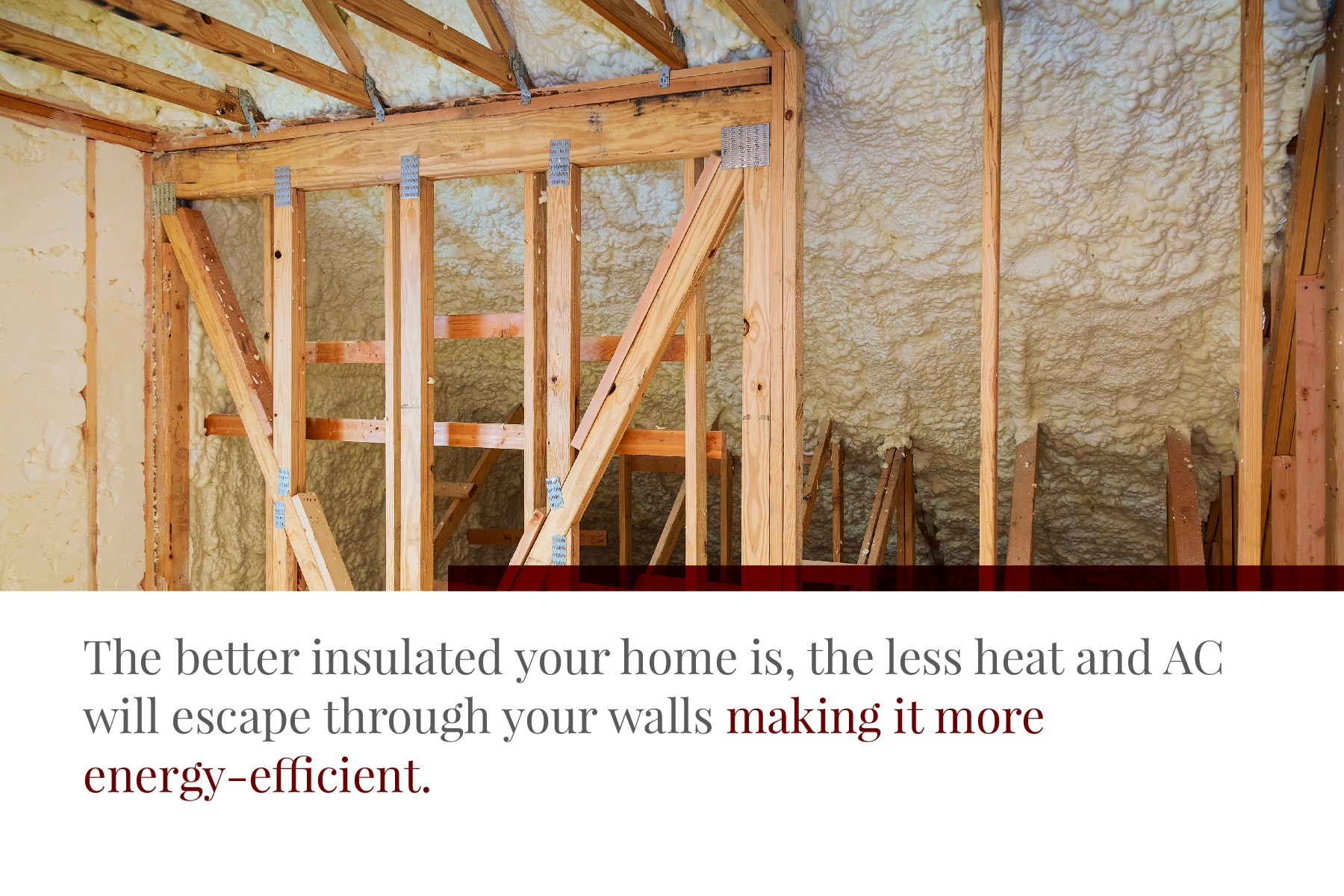
Keep in mind that even the best insulation can still let air through at the seams, which is why it is also important to seal those cracks and leaks!
Energy Star appliances
Energy Star is a program that promotes energy efficiency. It provides unbiased information for consumers and rates products regarding energy efficiency.
An appliance must meet specific efficiency standards to earn an Energy Star. Energy Star products are like regular ones; they just use less energy. The Energy Star helps you know which appliances are efficient and which are not.
Installing Energy Star qualified products and appliances in your new home will lower your utility costs and help protect the environment.
Efficient HVAC system
HVAC stands for Heating, Ventilation, and Air Conditioning. The HVAC system keeps a home at the right temperature and keeps fresh air moving within the house. They also filter the air to reduce dust, debris, and odors.
Heating and cooling efficiency is the most effective way to decrease your overall energy consumption.
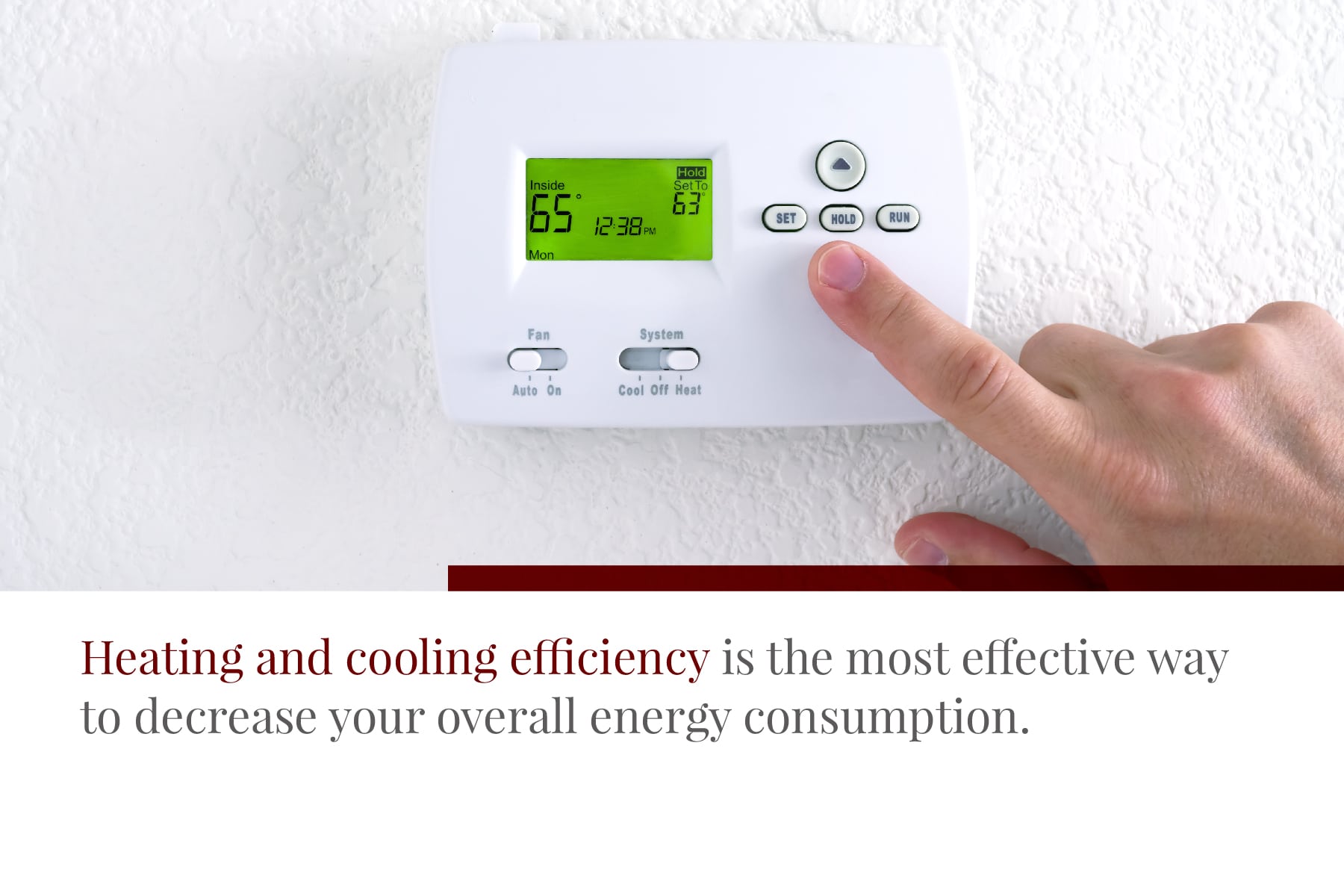
In Southern states, AC is one of the home’s highest energy uses, and in Northern states, heating takes up a lot of energy. HVAC efficiency reduces the energy you use to heat and cool your home.
HVAC systems require significant energy to run, but high-efficiency models are available. A highly efficient HVAC system will significantly affect your overall energy usage.
Moisture control
Properly controlling moisture in your home helps it stay more comfortable as well as makes it more efficient.
How does it make your home more efficient?
Controlling moisture helps your insulation and air sealing function better. These, in turn, help with moisture control—the two are interconnected and affect each other.
Good moisture control also helps prevent mold growth and keeps the interior of your home comfortable and clean.
Moisture could come from wet conditions outdoors or from cooking or showering inside the house. Either way, you should have a plan for moisture control so it doesn’t cause your home to deteriorate.
Quality windows and doors
Remember, you have to seal up all those leaks to lower your utility bills and save energy.
Windows and doors are prime spots for leaks! Air can easily slip in if a window or door is poor quality or badly sealed.
Install Energy Star qualified doors, windows, and skylights to ensure you get quality products that will perform well and save you money.
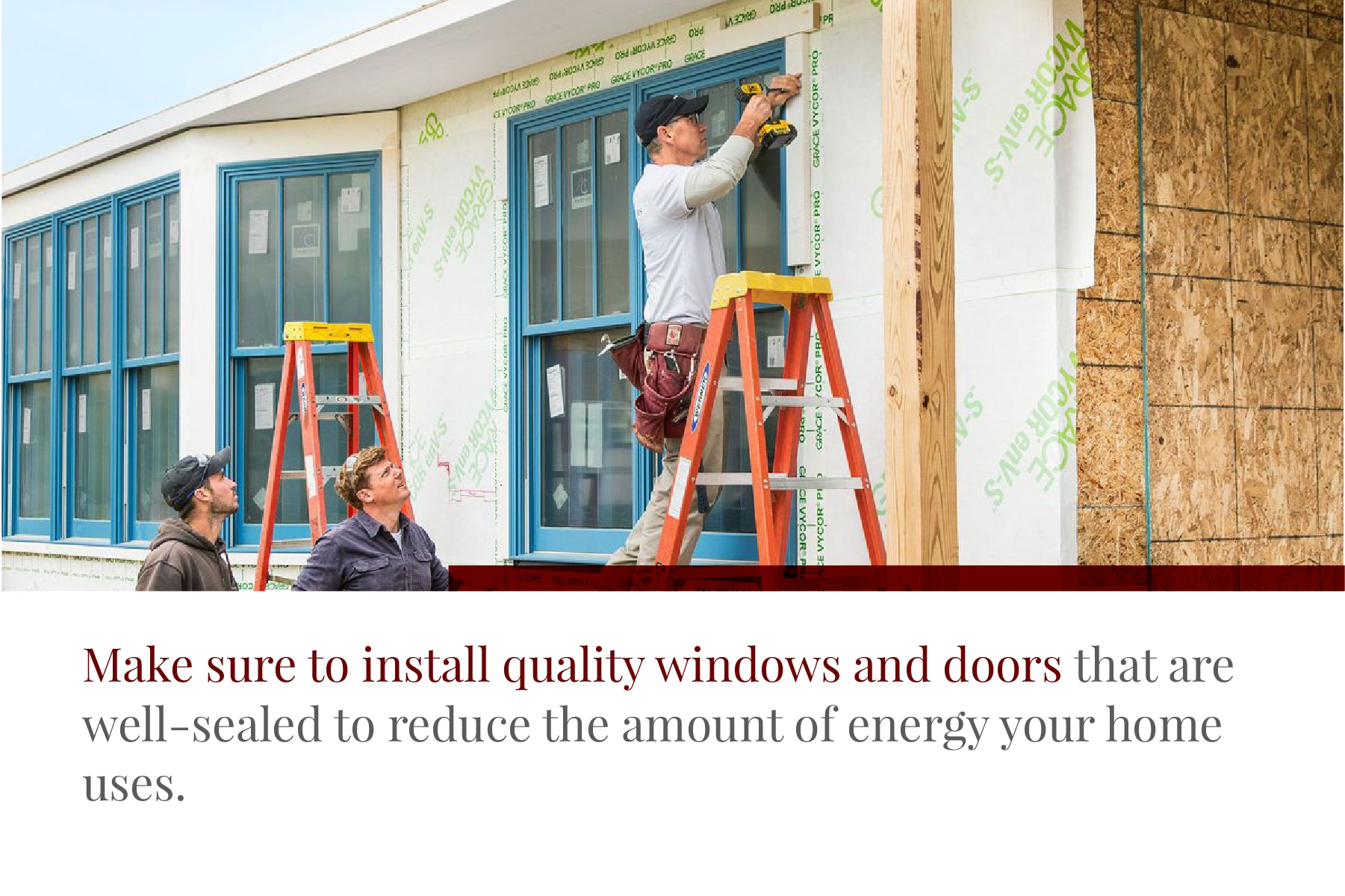
Efficient water heater
There are lots of types of water heaters available. When choosing a water heater for your new home, you want to find one that is right for your household—Nobody likes running out of hot water and getting a cold shower!
Some water heaters are inefficient and use excess energy. Why buy one of these when there are many high-efficiency models to choose from?
After all, water heating can account for 14-18% of your utility bills. Buying an efficient water heater could save you a lot of money!
LED lighting
Replacing one lightbulb seems like a small change.
But try switching every lightbulb in your home to LED. You will see your electric bill drop!
LED lights use much less energy than other types of lighting. Outfitting your entire home with LEDs helps save both the environment and your bank account.
Third-party inspections
It's always best to get a second or third perspective—after all, sometimes homeowners and builders miss things! Cover all your bases by getting a third party to inspect your home for energy efficiency.
Unlike a builder, who may be motivated to find problems to sell you a fix, a third-party assessor provides an unbiased assessment of your home.
An assessment can be especially valuable if your home is already built and you seek ways to improve its efficiency.
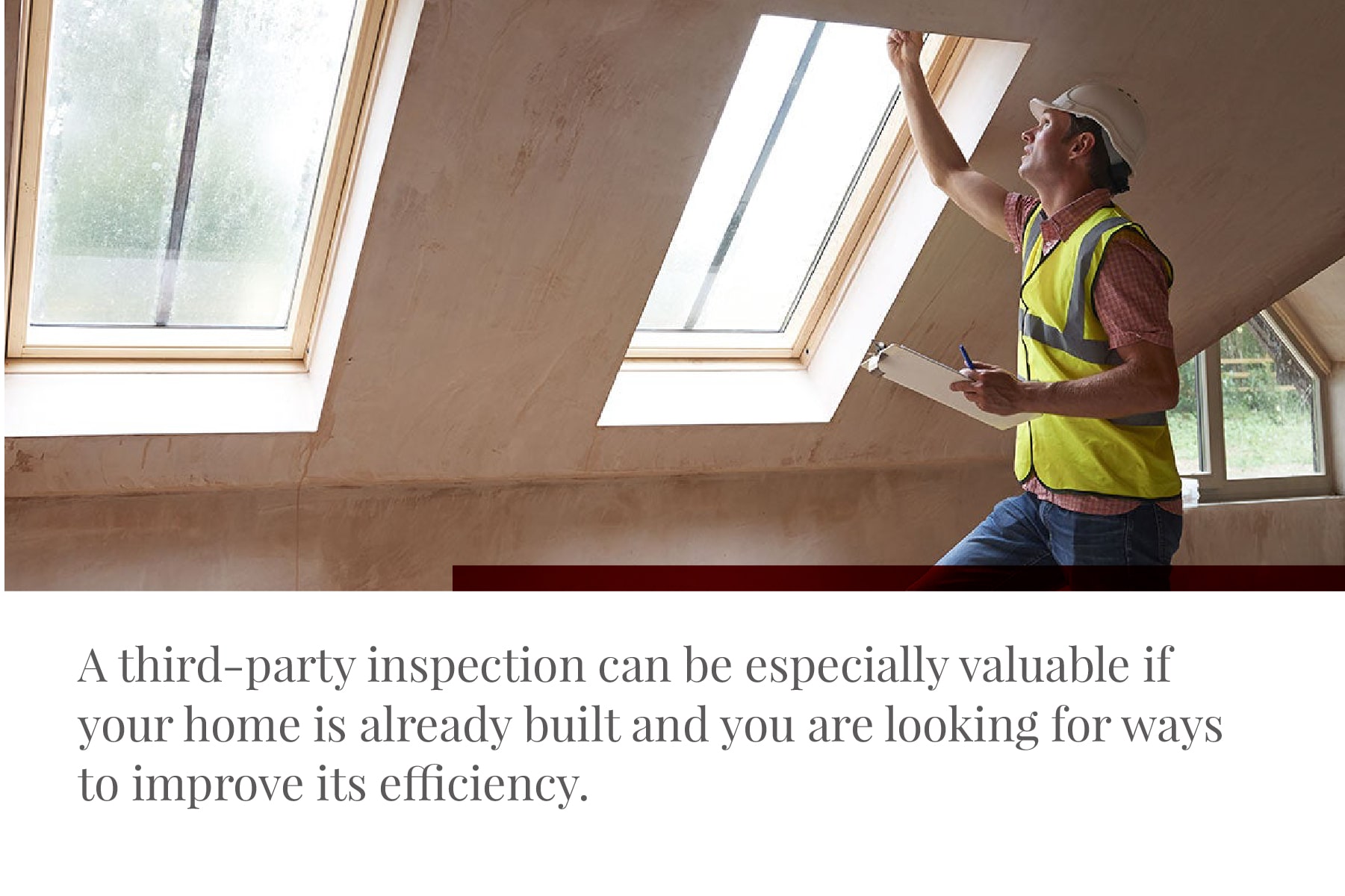
If you are interested in a professional energy audit, there are several places you could go to find an assessor:
- Go to your state or local energy and weatherization office. They may be able to help you find a local organization that conducts energy audits.
- Check with your energy utility to see if they do audits.
- Go to the Residential Energy Services Network to find assessors near you.
Once you've found an assessor, they can tell you how to make your home more energy efficient!
2 Types of Energy Efficient Homes
Let’s take a look at two unique types of energy-efficient homes.
Energy Star Certified Homes
Energy Star is an organization that provides consumers with information and rates products, materials, and homes according to their energy efficiency.
Since 1992, when it was founded, Energy Star has helped Americans save an estimated 3 billion tons of greenhouse gases. That is equivalent to the yearly emissions of over 600 million cars!
For a home to be Energy Star Certified, it must meet specific standards.
What are some of these standards?
- A complete thermal enclosure (insulation)
- High-efficiency HVAC system
- Comprehensive water management system
- Energy-efficient lighting and appliances
- Third-party verification
If a home meets the requirements, it can be Energy Star Certified. Energy Star Homes are designed to be at least 10% more efficient than the standard home and can deliver up to 20% savings for homeowners.
In addition, Energy Star Certified homes are eligible for certain tax credits and exemptions. Qualifying for a mortgage or loan may be easier if your home is certified.
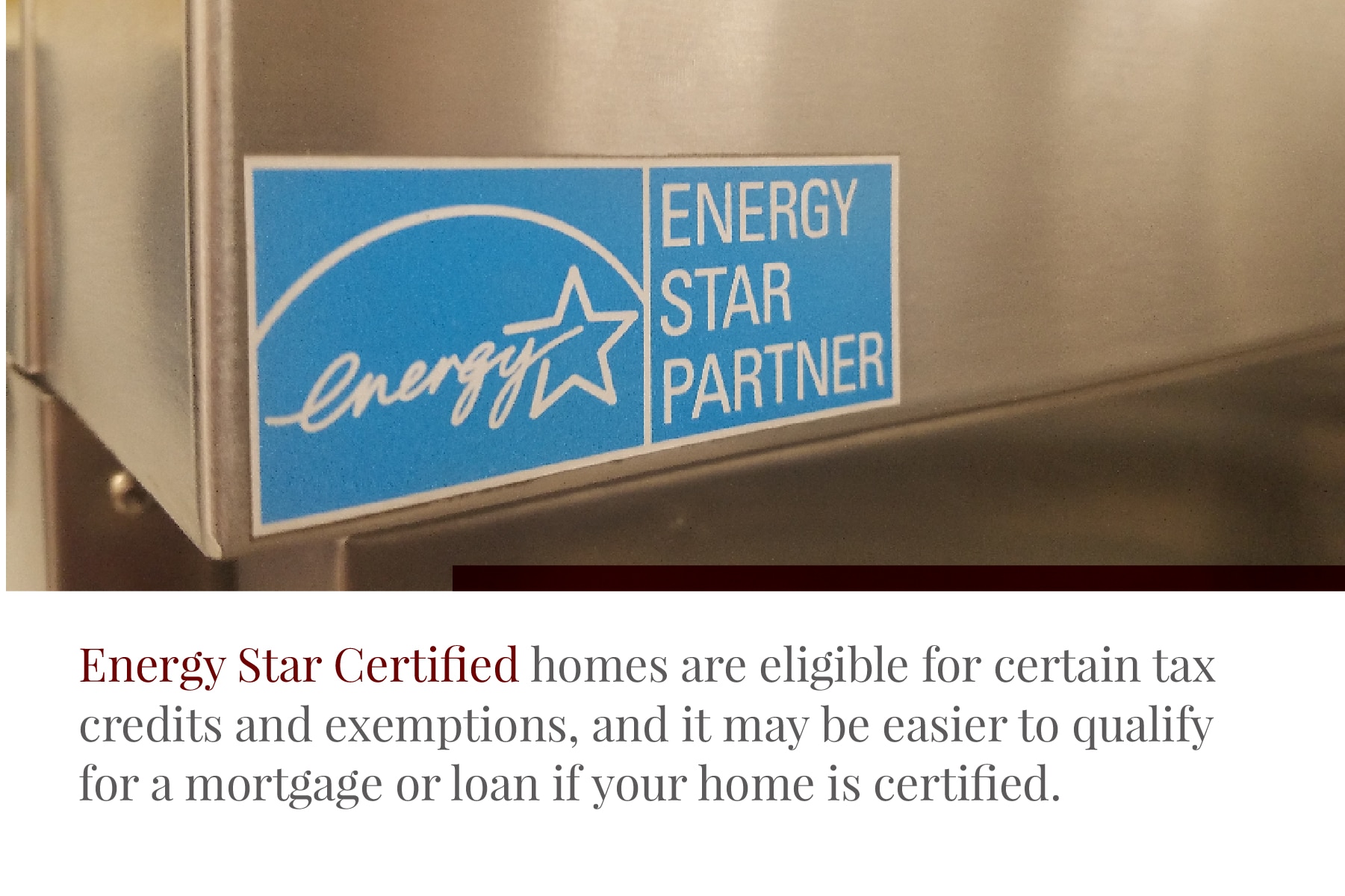
And if your home is Energy Star Certified, you can rest assured it was built with quality materials and construction.
Net Zero Homes
Imagine a home where your energy bills are $0.
That is a net zero home!
Net zero, or zero energy homes, are designed to produce as much energy as they consume. It’s not just a green home or a home with solar panels. It’s a home where the net energy usage is actually 0!
How can you make a home net zero?
There are two parts to the process. First, install solar panels to generate your electricity. Then, build your home smart to maximize energy. This includes:
- Exceptional air sealing
- Efficient water and power management
- Smart appliances and devices
- Continuous insulation
- High-performance doors and windows
- Efficient heating and water heaters
If you have a renewable power source and a smart enough home, you can actually get your energy to net zero! It is entirely possible.
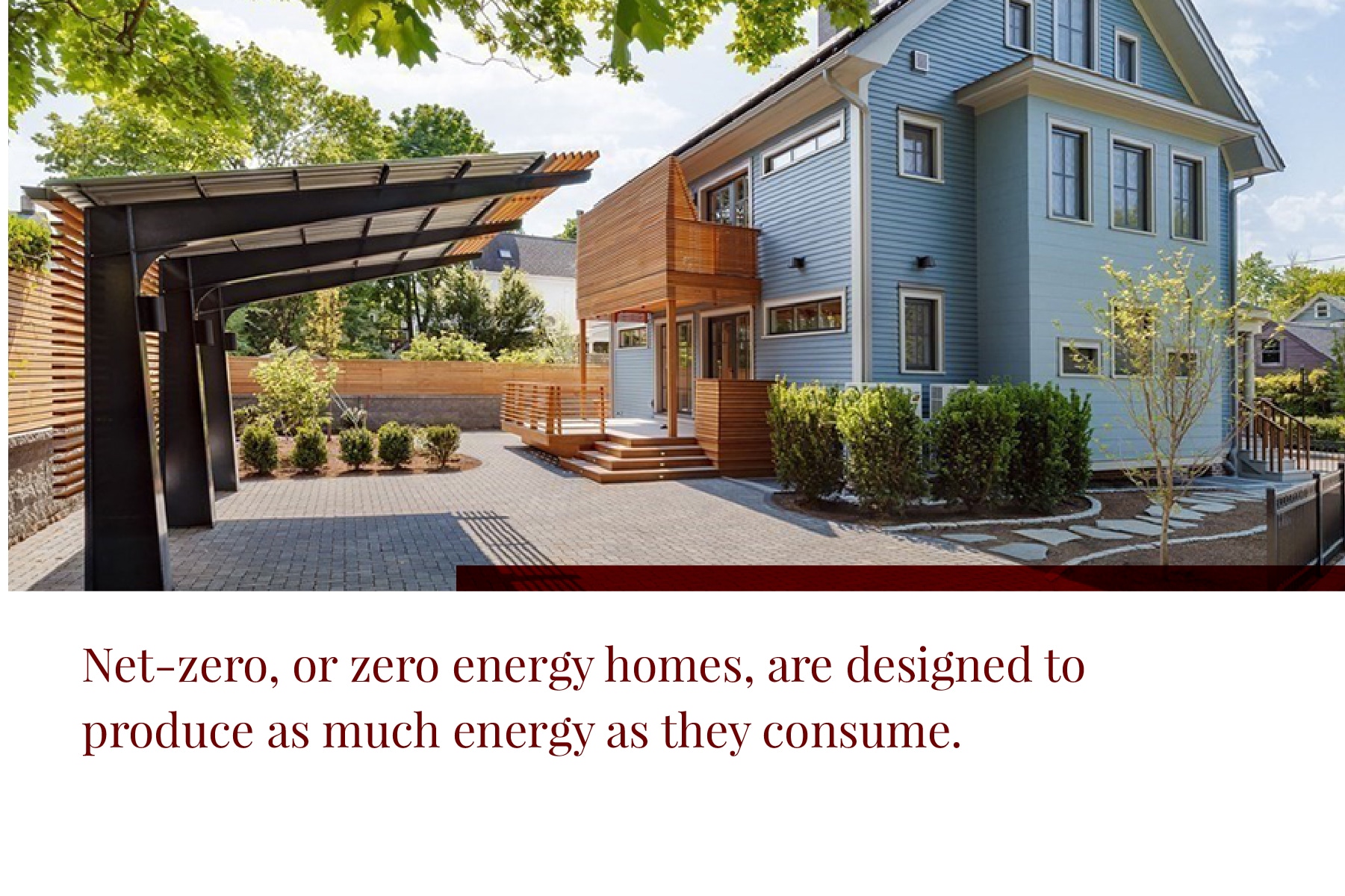
What are some benefits of a net-zero home?
Net-zero homes are:
- Comfortable and quiet
- Durable and well-built
- Cheaper in the long run, with lower utility bills
Intrigued? For more quality information on the different types of energy-efficient homes, read this related blog post: Net Zero Homes & New Energy Homes – The Benefits And Differences.
How Can K Graber Construction Help?
If you want your home to be Energy Star Certified or Net Zero, talk to K Graber Construction! We can help.
Using our hybrid insulation packages and thin-film solar on your roof, you can have a net-zero energy home.
Also, K Graber Construction offers pole barn homes and ICF construction homes. These types of homes can maximize energy efficiency and lower utility bills.
Intrigued? Check out our related blog post: 4 Reasons Your Next Home Should Be A Pole Barn Home.
Conclusion
Are you ready to get started on your new, energy-efficient home?
It’s easy to work with us. Just follow these easy steps!
- Get a free quote
- Approve the estimate and design
- Sit back while we begin construction
- Enjoy your new home!
We offer a variety of construction services, including:
Give us a call today! We will do our best for you, and we look forward to hearing from you!
